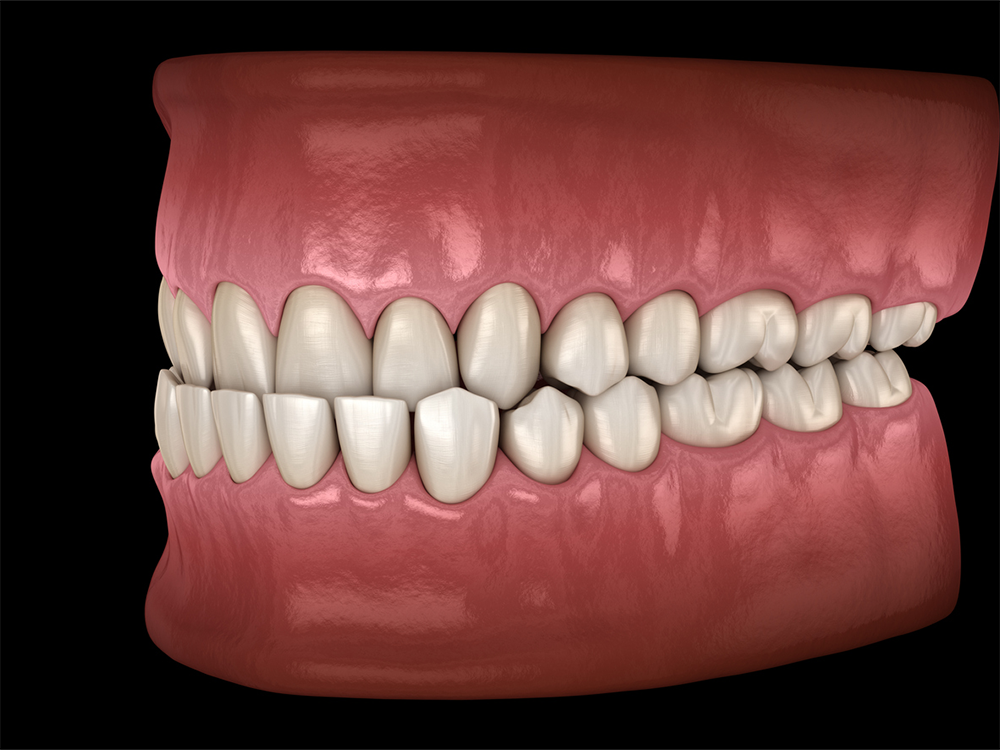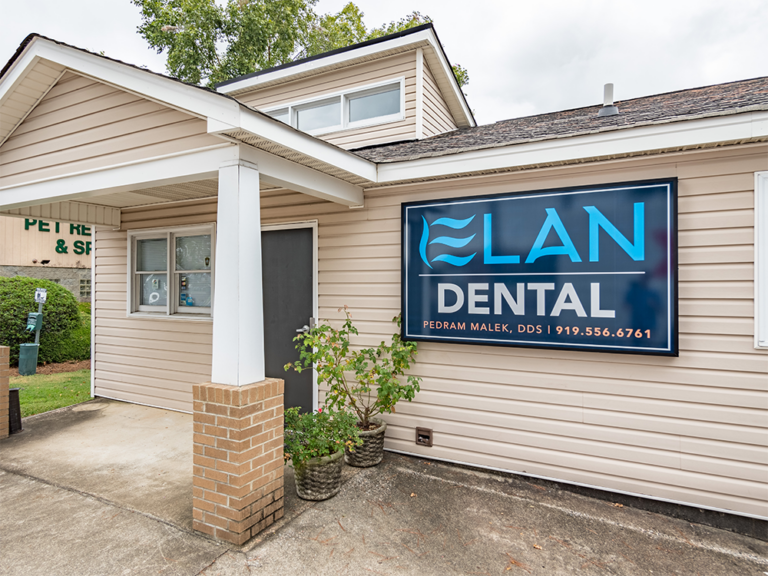Underbite Correction
An underbite happens when the lower teeth extend farther than your upper teeth. This typically results from a misalignment of the jaw, this is known as a class 3 malocclusion.
Underbite Correction Treatment
An underbite can affect you at different stages in your life and can also be caused by multiple factors. Children who have a prolonged thumb-sucking habit or use a pacifier, pushing of the teeth with the tongue, and long-term bottle feeding can all have an impact and increase the risk of an underbite development. While underbites are best treated while the jaw is still developing, many adults live with this type of misaligned jaw and suffer from TMJ, headaches, chronic pain, and more. If you believe you or your child is experiencing underbite, call our office to schedule an appointment today!
Call Our Rolesville Office Call Our Raleigh Office
-
How are underbites treated?
Treatment options vary according to the patient’s age and the degree of their underbite, although in most situations, minor to moderate underbites may be corrected without surgery. The following are the most frequent procedures for correcting an underbite:
- An upper jaw expander. This may be recommended if the upper jaw is also small in width. Fitted across the patient’s palate, the upper jaw expander works by gradually widening the jaw so that the lower teeth match better with the upper teeth.
- The ‘reverse-pull’ headgear. This type of headgear can be used to pull the upper jaw forward and works more effectively for patients under the age of 10.
- Braces or clear aligners. Suitable for children and adults, braces or clear aligners can be an effective treatment method for underbites, especially if orthodontic elastics are worn.
- Tooth extraction. Where appropriate, extracting carefully selected teeth can help correct underbites in mild to moderate cases.
- Surgery. In adults with a severe underbite, orthognathic jaw surgery may be required to align the upper and lower jaws into their ideal positions. The surgery is generally very predictable and is considered low risk. When appropriate, a referral to a maxillofacial surgeon will be provided by your specialist orthodontist.
-
What are the main causes of underbites?
The causes of underbites can vary and may include:
- Genetics. Did you know that underbites are most commonly inherited? Genetics help determine the shape and size of your teeth and jaw, meaning that overcrowded teeth or a misaligned jaw are likely inherited from other family members. If your underbite is due to genetics, prevention is not generally possible.
- Injury. Serious facial injuries can cause lasting damage to the jaw. While it’s possible to surgically repair broken jaw bones, teeth may not always align post-surgery. This can potentially lead to an underbite.
- Tumors. Although quite uncommon, tumors of the mouth or jawbone can cause an underbite by affecting the growth or alignment of the jaw.
Have Any More Questions?
If you have more questions about underbites or want to request an appointment, call our office and we'll be happy to discuss further.


